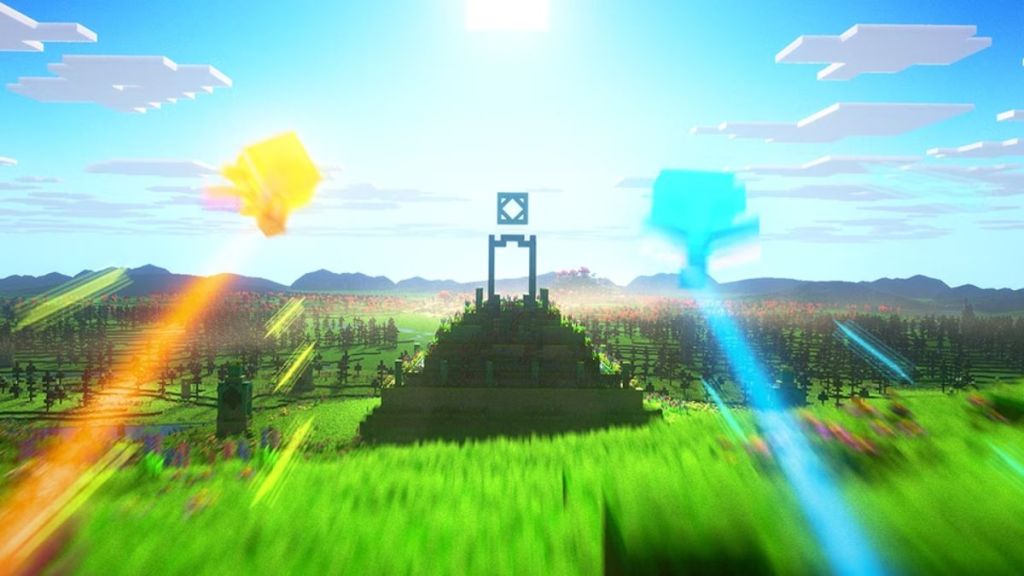After tackling the dungeon crawler genre, Mojang Studios has set its sights on the RTS genre with Minecraft Legends. This engaging tactical experience should serve as a great introduction to the genre for younger audiences, but a lack of strategic depth and customization means it isn’t a memorable experience. However, some clever design choices still make Minecraft Legends enjoyable from start to finish.
Engaging and immersive campaign
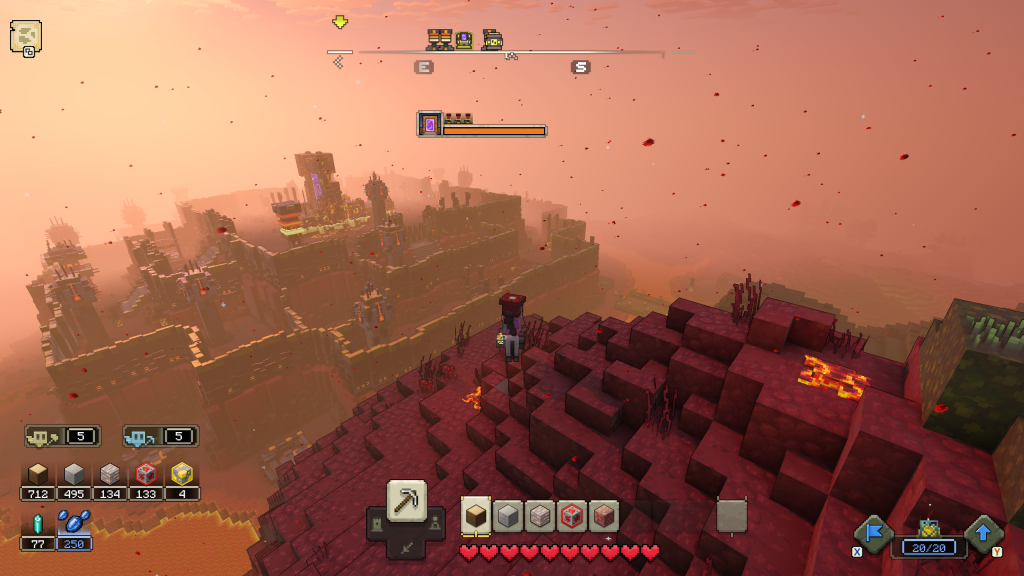
While the meat of the game lies in the multiplayer, Minecraft Legend’s campaign effectively introduces game mechanics while setting the scene. The premise is straightforward — evil Piglins are invading the world from the Nether, and you’re tasked by benevolent gods to fend them off.
The Piglins are invading through portals scattered around the world, protected by walls, towers, and hordes of varied minions. While you’ll eventually go on the offensive to purge the invading menace, you’ll spend the first part of the game building defenses for the villages scattered around the map.
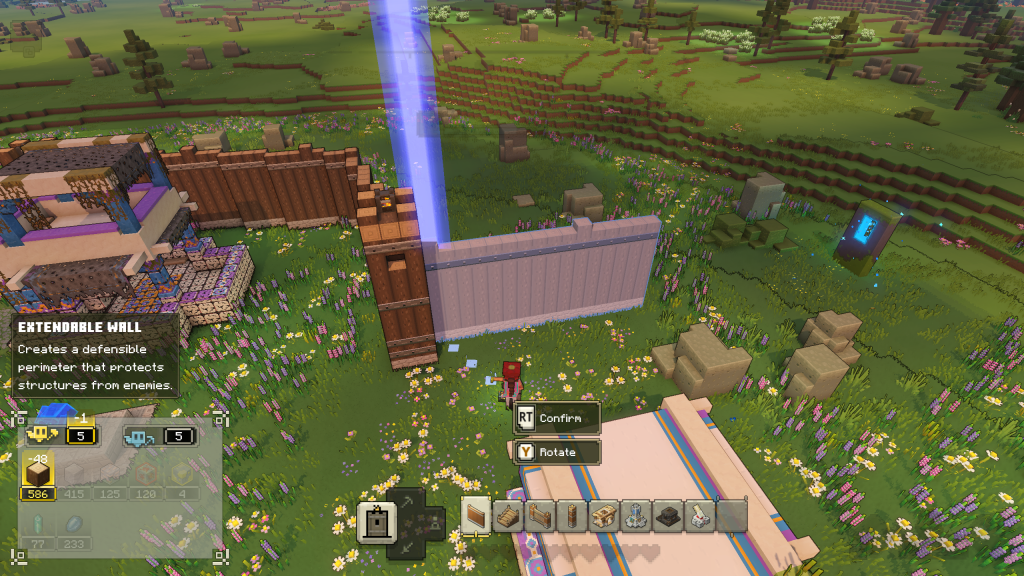
Each morning, your map updates with alerts about where the Piglins will attack at nightfall, so you’ll have plenty of time to gather resources and fortify villages. Building gates, cannons, and walls to protect vulnerable villagers is quick and easy, almost too much so. It only takes minutes to fortify a village, after which you can let it be. It would have been nice to have more involvement in villages over time beyond collecting the resources they gather for you.
As you play, you’ll team up with new and familiar creatures, which you can round up into small armies. You’re not just commanding them from above, either. Far from the detached observer approach favored by most RTS’, Minecraft Legends puts you right in the thick of things. You’re far stronger than any of your minions, so your presence is vital to clearing out the waves of Piglins.
Token but effective Minecraft experience
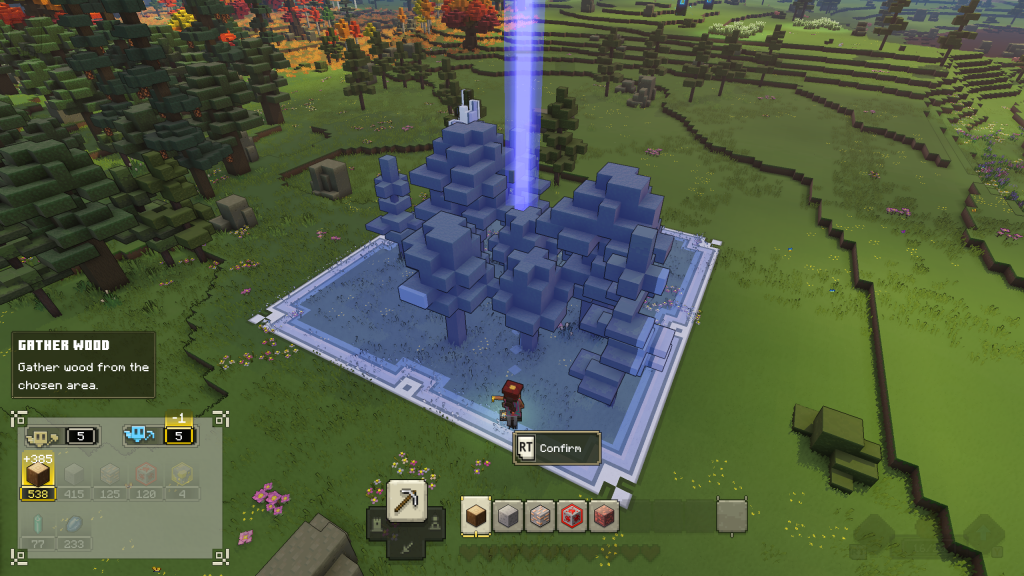
It’s a Minecraft game, so expect a lot of building and resource gathering. However, it’s a relatively passive experience as fairy-like creatures called Allays perform all the hard work for you. The resultant gameplay is fast, letting you focus on the combat. You don’t get bogged down in either action, but it’s so easy that I felt a little detached from the entire process.
Task Allays to gather resources by marking a square on the ground and assigning it a specific resource (e.g., wood, stone, iron, redstone). You can then move on as an Allay automatically gathers everything in that area.
Each region has a unique resource, but finding them is as simple as walking in a straight line. They’re so common you can throw out Allays almost randomly as you adventure, so it takes minimal effort to reach your resource cap.
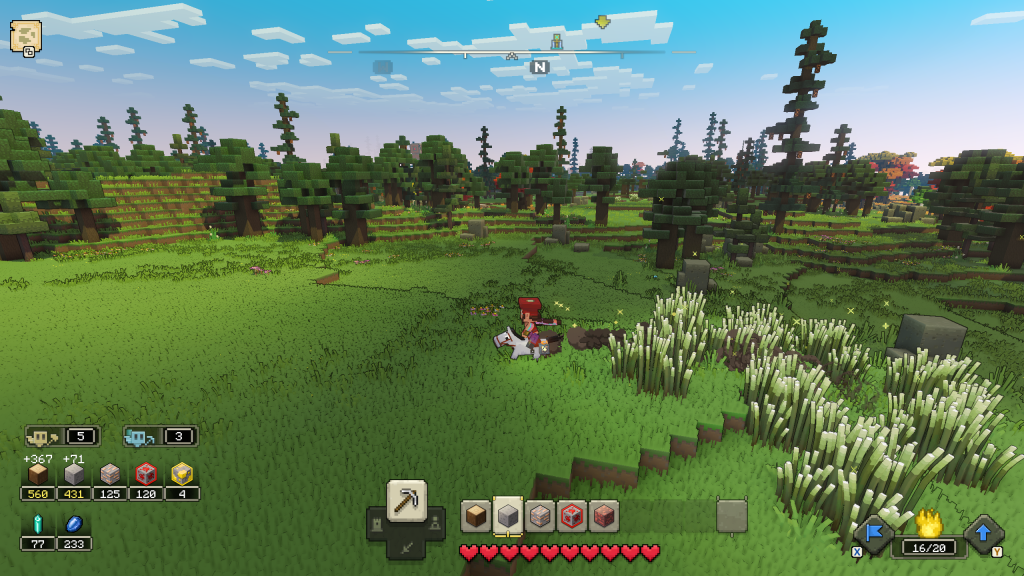
Despite the sandbox premise, the building is a repetitive process. Simply place a ghost of the building on the ground, and an Allay will then construct the structure for you, assuming you have enough resources. Every village needs the same fortifications for an effective defense, so you’ll repeat the same process numerous times. Place gates, then walls, then towers. Throw in some carpenter buildings for repairs and some cannons. Rinse and repeat.
Attacking Piglin strongholds is similarly repetitive. While you can attack how you want, you’ll inevitably follow the same loop of throwing minions at the base until its health bar reaches zero. It’s a shame, as the range of minions at your disposal suggests a range of tactical options, but there’s no way to organize them effectively. I initially went to great efforts to build a varied army to combat any eventuality, but I soon learned that throwing my starter minions at the walls had the same effect for much less effort.
However, once you jump into multiplayer, things become much more interesting.
Competitive and strategic multiplayer
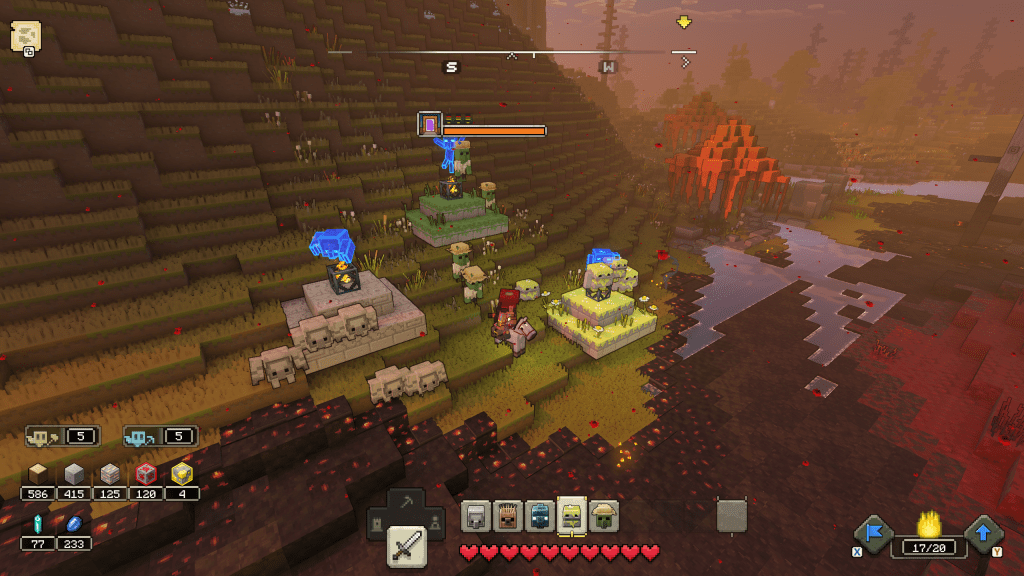
Multiplayer is where you’ll find the meat of the game. Minecraft Legend’s PvP matches consist of two teams with up to four players a side, where you’ll fight to destroy your opponent’s base while protecting your own.
Each match is set in a randomized version of the campaign map, with resources and Piglin bases scattered around. You’ll have the same slate of buildings and minions at your disposal as in the campaign, but how you deploy them is up to you.
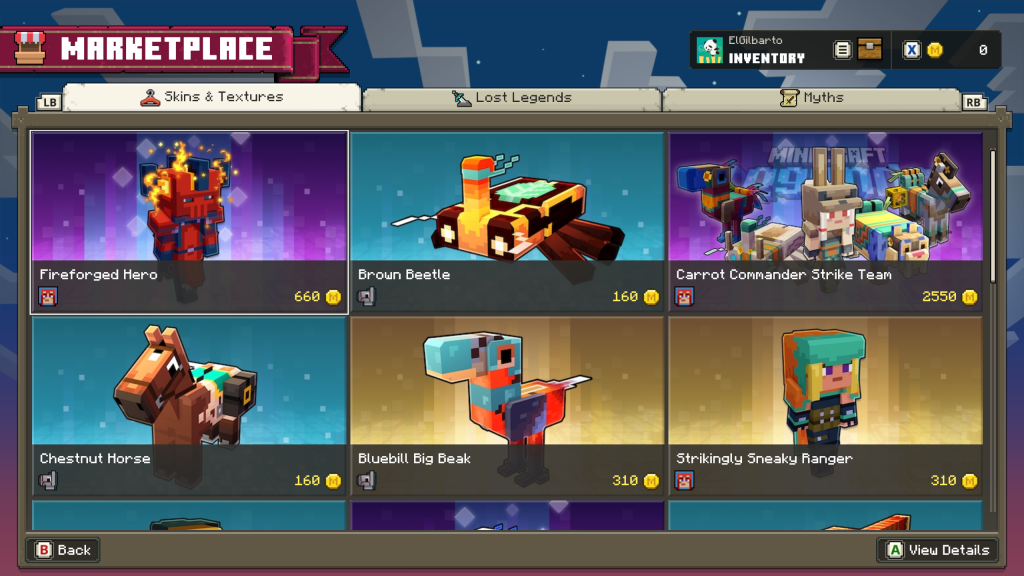
The human element eliminates much of the repetitiveness of the campaign’s gameplay. Rushing your enemy with hordes of basic minions is a viable tactic, as is advancing steadily across the map with fortified outposts. The emphasis on larger teams helps spread the pressure. Resources are shared so that you can split tasks among players. For example, one player can gather resources, another fortifies the base, and another raids the enemy.
Final Verdict
Minecraft Legends is fun but lacks heart. As the franchise expands into other genres, I hoped this spin-off would reflect the creative spark that made the original the best-selling game of all time, but I’m disappointed.
For example, why can’t players design walls, towers, and buildings within some basic restrictions? Even if limited to the campaign, allowing players to put their touch on the world help Minecraft Legends feel worthy of the name.
If you’re looking for an accessible RTS that offers exciting and tactical gameplay, Minecraft Legends will satisfy you. But don’t expect the Minecraft name to mean much beyond branding purposes.
Positives and Negatives
-
The Minecraft world is brought to life with crisp, beautiful graphics
-
RTS gameplay is accessible with plenty of variety
-
Multiplayer offers plenty of opportunities for tactical gameplay
-
Campaign quickly becomes repetitive
-
Opportunities for creativity are squandered
